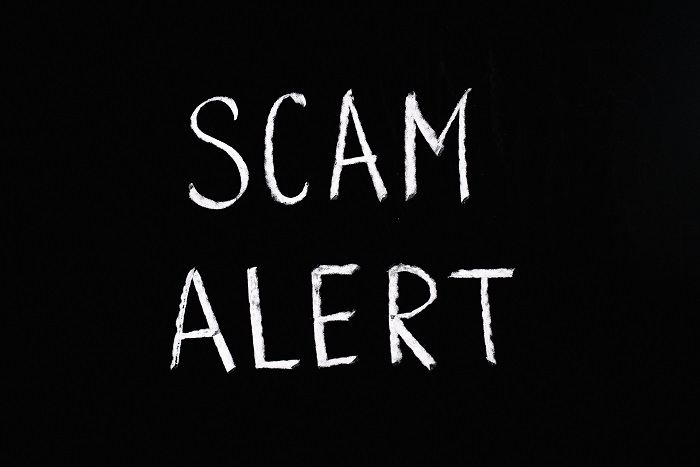
“I hate scams.”
– Erica Jong
Pass the word to those who need to hear it. Across the United States, official-looking letters are convincing homeowners to pay for documents to certify the obvious — that they own their homes. Homeowners who send payments in response to these letters are not receiving the documents for which they paid.
Those most likely to fall prey to this scheme are recent and first-time home buyers, and the older generation. New homeowners are swamped with paperwork and offers. They can mistake solicitations for legitimate bills. And older people may be impaired, or simply less able to do research on this type of activity. Some of the solicitations are addressed to the names of the living trusts of older homeowners. Survivors of recently deceased homeowners are getting the notices, too.
Some recipients might be startled by the letters, thinking that someone is attempting to steal their deeds. Others might simply pay the amount without much thought, because the total sum requested is under $100.
New Emergence of the Infamous Deed Notice Letter
In April 2021, a letter is making the rounds from an entity named Records Recovery Services, billing homeowners $87 for copies of their deeds as verification of ownership. Records Recovery Services is not traceable to a registered company; it’s just a P.O. box. It has sent letters in official-looking envelopes to addresses across the country.
Multiple recording offices are warning homeowners not to pay Records Recovery Services. They remind homeowners that copies of deeds are always available from their county Recorder of Deeds. If there is a fee to obtain a copy, it usually runs no more than a few dollars for the full document. For example, in Minnesota, the cost for a copy of your house deed runs about $1 per page. If a certified copy is needed, the charge is typically $10 per document, depending on the specific county’s fee schedule.
☛ Always know how to locate proof of your homeownership yourself. See more about Getting a Copy of Your Real Estate Deed.
Wherever you live, if you have misplaced your original house deed, you can order a certified copy from your own county Recorder of Deeds. A certified copy of your house deed has the same weight and effect as the original deed. To respond to a legitimate request for a copy of your house deed, ask if a certified copy is required. In some cases, a simple copy of the deed is enough.
Additionally, homeowners in many counties can simply review and obtain their property information using the local Recorder of Deeds website. And they can call the office to get reliable information about requests for deed information.
Everything Old Is New Again: This Scheme Has Been Around for a Decade

Deed notice scam letters have been making the rounds throughout the pandemic. One version of the letter targeted residents of Montgomery County, Pennsylvania in late 2020, asking for $95. Fees near $100 are also being requested in Minnesota and elsewhere.
This round of deceptive mailings picks up a scheme that emerged years ago. Back in 2012, as reported by Takacs McGinnis Elder Care Law of Tennessee, a series of letters came from the so-called Record Retrieval Department of Nashville. After that, letters started making the rounds from state to state. They came from entities called Records Transfer Service, Local Records Office, and Secured Documents Services.
Similar scam letters bill their recipients a so-called service fee of $82 to $86 for a property assessment profile and a copy of a deed. Sent by Property Profile, Inc., of Glendora, California, the letters carry the heading RECORDED DEED NOTICE over a scanner code. They include real property identification numbers and they announce deadlines for payments.
In 2019, in California, the Randolph County Register of Deeds distributed a warning. Daily, residents were getting letters from Property Profile, Inc. soliciting payments from homeowners for copies of their deeds. Another version of the California deed notice letter demands $89 and comes with a serious-sounding notice: “$2,000 fine, 5 years imprisonment or both” for impeding the delivery of the notice. (The delivery of all mail is protected by law.)
In short, the deed notice scheme is as rampant as it is manipulative. And it’s still going on, despite efforts by the Register of Deeds Association to ban it.
☛ Well-known scams are being rehashed to exploit vulnerabilities created by COVID-19. See more about real estate frauds, and how to steer clear, at Viral Fraud: More Deed Crime Targets in the Coronavirus Economy.
Several state legislatures have managed to at least restrict the advertising copy for these solicitations. Ohio law, for example, requires such advertisements to include disclaimers — significantly, in 24-point or larger typeface — stating the cost of getting a copy of the deed from the county recorder. No entity may never ask for more than four times the fee charged by the county for the same service. Instructions on contacting the county recorder to order a copy of a deed must be set forth in the solicitation letter.
The issuer must further state that it is not a government agency. It must inform its Ohio recipients that no law requires them to respond to the solicitation. The use of deadline language is prohibited. The actual people behind the solicitation must state their names and physical addresses. They must register with the county recorder of deeds, submitting their proposed advertisements to the county at least 15 days before sending them out.
Got an Unexpected Bill or Solicitation? Ask Questions
Tell those you know about these notices. Don’t pay them. Consider reporting them to the Federal Trade Commission by calling 1-877-FTC-HELP or using the reporting tool on the FTC website. The Recorder of Deeds in Jackson County, Missouri has asked recipients to notify the FBI.
Thousands of people lose money in real estate scams every year. According to the Attorney General of Minnesota, it’s important for homeowners to know the circumstances in which they actually need copies of their deeds. These situations may include mortgage refinancing, sales transactions, or otherwise transferring their home titles. But in each case, the county register of deeds has your back, and so do we.
☛ Your original deed is best stored in a secure yet accessible place. To help you organize everything you’ll need at some point, here’s your New Homeowner’s Document Checklist & Storage Plan.
Whenever you get an unexpected letter, text, call, or email related to your home or other assets, trust your suspicions. Avoid clicking links or returning messages. Do not offer information or money. Research the sources before making decisions, and report obvious scams.
Protect yourself and all homeowners by staying alert. As Minnesota Attorney General Keith Ellison says: “When in doubt, don’t give it out.”
Supporting References
Suppliers Soliciting Fees for Copies of Deeds: Ohio Revised Code, Section 1345.032.
The Minnesota Attorney General’s Office: Real Estate Deed Solicitation Scams.
WGN TV Chicago: Beware of Scam Asking You for Money to Prove You’re Owner of Your Home (posted by Linda Wagar on Apr. 22, 2021).
David Lazarus for the Los Angeles Times: A Copy of Your Property Deed Costs $3. This SoCal Firm Will Do It for $89 (Nov. 12, 2019).
Larry Penkava for The Courier Tribune: Deed Notice Scam Letters Return to Local Mailboxes (Asheboro, North Carolina; Feb. 29, 2020).
The Reporter Online (MediaNews Group, Inc.): Deed Scam Targets Montgomery County [Pennsylvania] Homeowners (Sep. 11, 2020).
Image credits: Anna Tarazevich and Mikhail Nilov, via Pexels.
